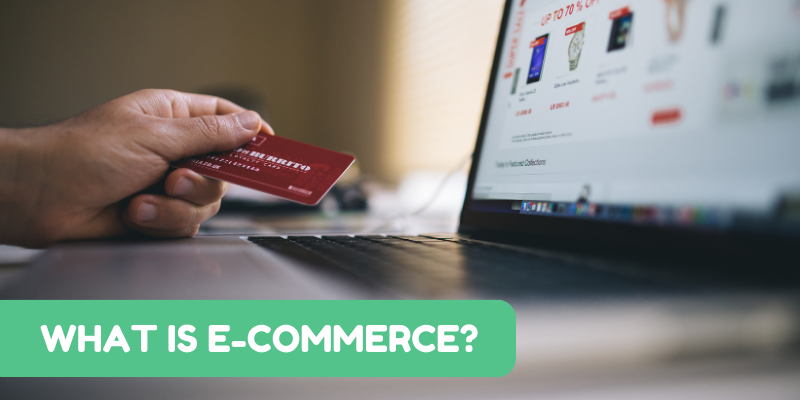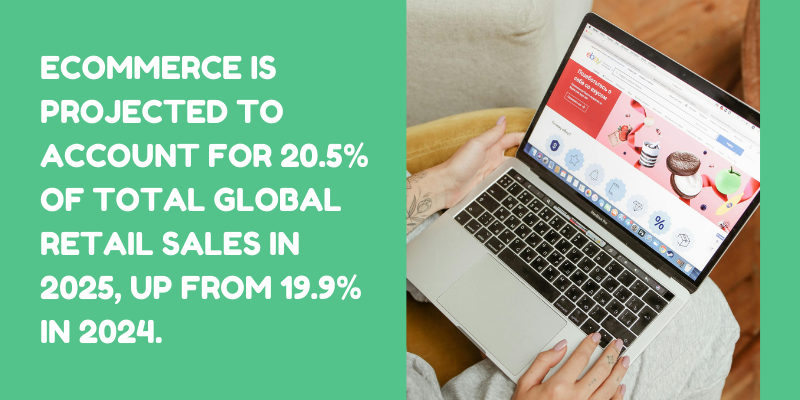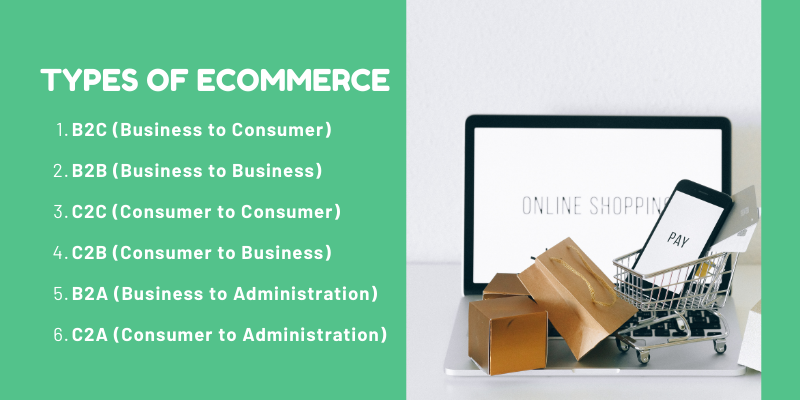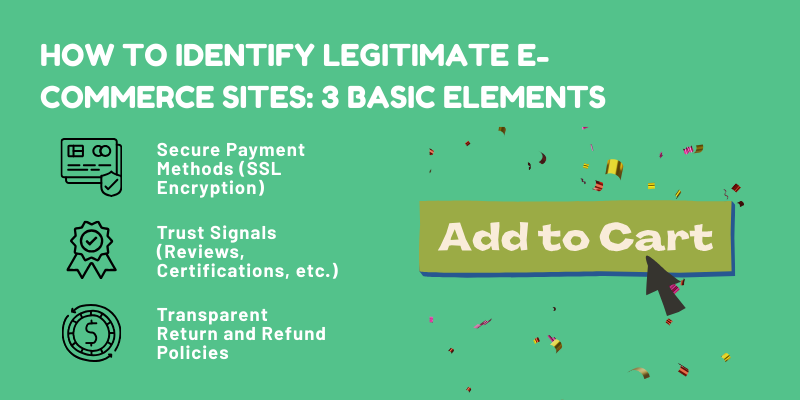In recent years, e-commerce has revolutionized the way people shop and businesses operate. With the growing prevalence of online stores, it’s natural to wonder: is eCommerce legit? The truth is, e-Commerce has become a vital part of the global economy, offering a seamless and efficient way for consumers to buy products and services from the comfort of their homes. Online shopping platforms are now trusted by millions, providing convenience and a wide range of choices. eMarketer forecasts that global retail e-Commerce sales will reach $6.42 trillion in 2025, marking a 6.86% year-over-year increase from 2024.
However, as with any industry, concerns regarding security, authenticity, and reliability can arise. To ensure a positive experience, it’s important to choose legitimate, secure platforms that prioritize customer safety. Top e-Commerce sites invest in robust systems to protect personal information, making online transactions safe. For consumers, understanding the ins and outs of e-Commerce, from identifying trusted retailers to recognizing red flags, can help avoid potential pitfalls. Whether you’re a buyer looking for deals or a seller considering ecommerce development to create a robust online store, understanding how to navigate the world of e-commerce will allow you to enjoy its many benefits. The question isn’t whether e-Commerce is legit, but rather how to participate safely and wisely in this rapidly growing marketplace.
What is e-Commerce?
To truly define the term "e-commerce," it's important to first understand what it entails. So, let's begin by discussing what e-commerce actually is.

e-Commerce, or electronic commerce, refers to the buying and selling of goods and services over the internet.
This digital transaction process enables consumers to purchase products from sellers without the need for physical stores, creating a vast online marketplace.
The concept of e-Commerce emerged in the early 1990s when businesses started to embrace the internet for commercial transactions.
In the beginning, e-Commerce was primarily focused on providing catalogs and basic shopping features, but as technology advanced, so did its capabilities.
The rise of secure online payment methods, like PayPal, along with advancements in web development, digital marketing, and the growth of online banking, contributed significantly to the expansion of e-Commerce.
By the late 1990s and early 2000s, platforms like Amazon and eBay popularized the concept of online shopping, allowing both businesses and individuals to sell goods and services to a global audience.
Over the years, e-Commerce has evolved with technological innovations, such as mobile shopping apps, artificial intelligence (AI) for personalized recommendations, and faster payment systems, driving an ongoing shift from traditional retail to online shopping.
Get our Ecommerce Marketing Services!
The Rise of Online Shopping and Its Impact on Global Markets
The advent of e-Commerce has dramatically changed the way people shop, disrupting traditional brick-and-mortar stores and reshaping entire industries.

The convenience of shopping from home, access to a wide variety of products, and the ability to compare prices have led to a significant rise in online shopping.
According to reports, e-Commerce is projected to account for 20.5% of total global retail sales in 2025, up from 19.9% in 2024.
Global Retail Sales: By 2028, e-Commerce is expected to represent more than half of all retail sales worldwide.
The global reach of e-Commerce has allowed businesses to expand beyond local markets and tap into international customers, making it possible for small businesses to compete on a larger scale.
As companies continue to adopt digital marketing strategies, like Google keyword ranking optimization, they gain a competitive edge, ensuring their products are seen by the right audience.
The impact of e-Commerce on global markets has been profound:
- Business Reach: e-Commerce has enabled businesses to expand internationally with minimal overhead costs.
- Consumer Behavior: Consumers are now accustomed to the convenience of shopping anytime, anywhere, driving demand for more digital solutions.
- Job Creation: New jobs in digital marketing, customer service, logistics, and IT infrastructure have emerged due to the growth of e-Commerce.
- Retail Disruption: Many traditional retail stores have had to adapt or shut down as e-Commerce continues to capture a larger market share.
Get More Leads with Digital Marketing Services!
6 Types of e-Commerce
E-Commerce is diverse and encompasses various business models that cater to different needs and market segments.

Some of the most common types of e-Commerce include:
1. B2C (Business to Consumer)
The most popular and widespread form of e-Commerce, where businesses sell directly to consumers. Examples include Amazon, Walmart, and online fashion retailers. This model allows customers to shop for a variety of goods, from electronics to clothing, directly from the business's online store.
Many companies rely on B2C website design services to create visually appealing, user-friendly websites that cater to the needs of individual consumers.
2. B2B (Business to Business)
In the B2B model, businesses sell goods or services to other businesses. This is typically seen in wholesale and manufacturing industries. For example, Alibaba and ThomasNet are platforms where businesses buy products in bulk or get access to specialized services.
B2B website development services play a critical role in creating platforms that cater to business transactions, with features like bulk order systems and secure payment gateways.
3. C2C (Consumer to Consumer)
C2C e-Commerce enables consumers to sell directly to other consumers. Platforms like eBay, Craigslist, and Poshmark are prime examples of C2C e-Commerce, where individuals can list used goods for sale, allowing buyers to purchase from other byers rather than businesses.
4. C2B (Consumer to Business)
In this model, consumers offer products or services to businesses. A common example of C2B e-Commerce is a freelance platform like Upwork or Fiverr, where individuals offer their skills (such as graphic design or writing) to businesses seeking them.
5. B2A (Business to Administration)
This model involves transactions between businesses and government bodies or administrative agencies. It is often seen in sectors such as tax, social security, and legal services. A common example is a business paying taxes or fines via a government portal.
6. C2A (Consumer to Administration)
Similar to B2A, this model involves consumers interacting with government services, like paying taxes or utility bills through online government portals.
Explore our Ecommerce SEO Services!
The Legitimacy of e-Commerce
Is E-Commerce Legi? Let’s discuss it’s role from over the past years.
Since ten years e-Commerce has experienced exponential growth, transforming from a convenient shopping alternative into a mainstream method of buying and selling goods and services.
Consumers increasingly prefer the ease, speed, and accessibility of online shopping over traditional retail.
Advancements in technology, such as secure payment gateways, mobile commerce apps, and AI-driven personalization, have further fueled this growth.
Businesses of all sizes have embraced e-Commerce to expand their reach, reduce operational costs, and tap into global markets.
The convenience of 24/7 shopping, faster delivery options, and flexible return policies has made e-Commerce a preferred choice for millions worldwide, reinforcing its legitimacy as a reliable marketplace.
1. The Role of Major e-Commerce Platforms (Amazon, eBay, Shopify, etc.)
Is e commerce legit? The legitimacy of e-Commerce is strongly supported by established online platforms that have earned global trust. Amazon is a prime example, known for its reliable delivery, secure payment system, and robust customer service.
eBay facilitates both consumer-to-consumer (C2C) and business-to-consumer (B2C) transactions, providing buyer protection programs that ensure safe transactions.
Shopify empowers businesses to create their own online stores with professional features, secure payment options, and customizable logistics solutions.
These platforms have set industry standards, implementing rigorous measures to protect buyers and sellers, and demonstrating that e-Commerce is not only convenient but also safe and trustworthy.
Furthermore, eCommerce marketing has become an essential strategy for sellers to engage with customers and drive sales through tailored advertising and digital outreach.
2. Statistics and Trends Showing e-Commerce’s Global Impact and Trustworthiness:
Approximately 2.77 billion people worldwide are engaging in online shopping, representing about 33% of the global population.
Mobile Commerce Surge: Mobile commerce is on the rise, with projections indicating it will account for 40% of all U.S. e-Commerce sales by 2026.
Studies indicate that over 70% of online shoppers regularly purchase from trusted e-Commerce sites, reflecting consumer confidence.
Additionally, e-Commerce platforms increasingly implement SSL encryption, secure payment systems, and buyer protection in e-commerce policies, which enhance trust and legitimacy.
The continuous rise in repeat customers, positive online reviews, and the expansion of international shipping options all confirm that e-Commerce has established itself as a credible, secure, and influential force in global commerce.
In fact, ecommerce SEO firm has become an essential for businesses looking to optimize their online visibility and increase organic traffic, ensuring that customers can find their products easily.
How to increase eCommerce sales relies heavily on using strategies that boost product visibility and customer retention, often incorporating data-driven decisions.
With the right approach, businesses can leverage the growth of e-Commerce to their advantage, turning this marketplace into a reliable and profitable avenue for sales.
How to Identify Legitimate e-Commerce Sites? 3 Basic Elements
When shopping online, it’s crucial to identify legitimate e-Commerce sites to ensure safe transactions.

Here are the key factors to look for:
1. Secure Payment Methods (SSL Encryption)
Look for HTTPS in the website’s URL and a padlock icon in the address bar. This indicates that the site uses SSL encryption to protect your sensitive data.
Additionally, reputable sites offer trusted payment gateways such as PayPal, credit/debit cards, or other secure methods.
2. Trust Signals (Reviews, Certifications, etc.)
Some major points of trust signal include
- Customer Reviews: Authentic customer reviews and ratings are a good indicator of trustworthiness. Positive feedback from previous buyers can signal a reliable site.
- Certifications: Check for badges from trusted security organizations, like Norton, McAfee, or the Better Business Bureau, ensuring that the site meets high-security standards.
- Professional Website Design: A well-organized, user-friendly website with clear navigation and visible contact information adds to the site’s credibility.
3. Transparent Return and Refund Policies
A legitimate e-Commerce site will have clear and detailed return and refund policies, including time frames and conditions. These policies should be easily accessible, usually in the footer or during the checkout process.
As you research, you might also encounter B2B marketing strategies that focus on connecting businesses and creating a more efficient marketplace.
Whether you’re an entrepreneur trying to start an eCommerce business or an individual looking to make purchases safely, ensuring a site is legitimate and secure is key to a successful online shopping experience.
Risks and Red Flags in e-Commerce
While e-Commerce offers many conveniences, it also comes with its own set of risks. Being aware of these dangers can help you shop safely online and avoid falling victim to scams or fraud.
Is e-commerce legitimate? In this guide, we’ll explore common scams, how to identify unreliable stores, and the precautions you should take when shopping online.
- Is ecommerce a scam? Fraudulent sites often mimic well-known e-Commerce platforms but are designed to steal personal information or money. These sites may offer products at prices too good to be true or use deceptive tactics like fake customer reviews.
- Scammers may send you emails or texts claiming to be from a legitimate store, asking you to provide personal information or click on a malicious link. These phishing attempts may appear convincing, especially if the branding mimics a trusted store.
- Some fraudulent sites accept payments but never ship the goods, leaving buyers empty-handed. Often, these sites have vague return or refund policies that make it difficult to recover your money.
- Unsafe e-Commerce sites can expose your personal and financial information, leading to identity theft or unauthorized transactions.
Spotting Legit vs. Fraudulent E-Commerce Sites
When shopping online, it's essential to know how to distinguish between legitimate and fraudulent e-commerce sites. Here's a quick guide to help you spot the differences and shop safely.
| Indicator | Legitimate Site | Fraudulent Site |
|---|---|---|
| Website URL | Begins with https:// and displays a padlock icon in the browser bar. |
May lack https:// or display a broken padlock icon. |
| Contact Information | Provides a physical address, phone number, and a customer service email. | Offers minimal or generic contact details; often just a contact form. |
| Website Design | Professional layout with high-quality images, clear navigation, and no spelling errors. | Poor design, low-quality images, and frequent spelling or grammatical mistakes. |
| Return & Refund Policy | Clear, detailed, and easily accessible return and refund policies. | Vague, hard-to-find, or non-existent return and refund policies. |
| Payment Methods | Accepts secure payment options like credit/debit cards and PayPal. | Requests payment via wire transfer, cryptocurrency, or other non-secure methods. |
| Customer Reviews | Features authentic, varied reviews across multiple platforms. | Displays only positive reviews, often with generic or repetitive content. |
| Trust Seals & Certifications | Displays recognized trust badges (e.g., Norton, McAfee, BBB) that can be verified. | Shows fake or unverified trust seals; clicking them leads to unrelated pages. |
| Shipping & Tracking Info | Provides valid tracking numbers and timely updates. | Offers fake or invalid tracking numbers; updates are infrequent or non-existent. |
E-Commerce for Sellers: Is it a Legit Business Model?
Starting an online store has become increasingly accessible, and for many sellers, e-Commerce offers a legitimate and profitable business model.
Here's why
1. The Ease of Starting an Online Store:
The barriers to entry in e-Commerce have significantly lowered in recent years, making it easier than ever for entrepreneurs to start their own online stores.
Platforms like Shopify, BigCommerce, and WooCommerce allow users to quickly set up and manage their stores without needing extensive technical knowledge.
These platforms provide user-friendly templates, secure payment gateways, inventory management tools, and integrated marketing solutions, empowering sellers to focus on their products and customer engagement rather than getting bogged down in complex technical setups.
Additionally, Agencies like Centric can offer valuable guidance to businesses looking to scale and digitally transform their operations.
Through the use of effective ecommerce marketing and best website builders for small businesses, even newcomers can set up professional, user-friendly online stores.
With these resources, even individuals with limited technical expertise can successfully launch and run an e-Commerce business.
2. The Rise of Small Businesses Using e-Commerce
e-Commerce has opened new opportunities for small businesses, enabling them to compete on a global scale.
With online platforms, even niche businesses can reach a worldwide audience, significantly expanding their customer base.
The flexibility of e-Commerce allows sellers to start small, test their products, and scale up as demand grows, making it easier to manage risk and adjust strategies.
Many small businesses now thrive on e-Commerce platforms, benefiting from relatively low overhead costs compared to traditional brick-and-mortar stores, and they can reach customers far beyond their local markets.
This has democratized business ownership, giving entrepreneurs the tools to succeed without the constraints of physical retail spaces.
3. Legal Considerations for e-Commerce Sellers
Sellers must comply with various legal requirements, including tax laws, consumer protection regulations, and data privacy standards to ensure a legitimate and secure online business.
Some of the legal considerations are as follows
- Compliance with regulations like the General Data Protection Regulation (GDPR) in the EU or the California Consumer Privacy Act (CCPA) in the US is essential.
- Online stores must clearly state their return and refund policies.
- Sellers should adhere to advertising standards and ensure their marketing practices are transparent and truthful.
- Secure payment processes must be in place to protect both buyers and sellers.
Frequently Asked Questions
Is E-commerce Legit or a Scam?
E-commerce is legitimate, but some fraudulent sites exist. To stay safe, ensure the site offers secure payment options, a professional design, and positive reviews.
How Do I Know if an E-commerce Website is Legitimate?
Check for an HTTPS-secured URL and a padlock icon. Legit sites also have clear contact details, return policies, and trusted payment gateways like PayPal or credit cards.
What Are the Signs of a Fake Online Store?
Signs include unrealistically low prices, poor website design, and a lack of customer support. Avoid sites that only accept untraceable payments like wire transfers or cryptocurrency.
How Can I Spot Fake Reviews on E-commerce Websites?
Fake reviews often use generic language or repeat phrases. Look for sites with mixed reviews and recent feedback to ensure authenticity.
Is It Safe to Shop Online?
Shopping online is safe when you use secure websites with SSL encryption, trusted payment methods, and clear return policies. Always choose reputable platforms.
Conclusion
Is eCommerce legit? Yes, e-Commerce has proven to be a legitimate and rapidly growing business model, offering vast opportunities for both buyers and sellers. With the right tools and precautions, it has become easier than ever to safely shop and sell online. By being aware of security measures, understanding legal requirements, and recognizing trustworthy platforms, both consumers and sellers can navigate the e-Commerce landscape with confidence. In this evolving marketplace, knowing the top search engines to utilize, staying informed about digital marketing strategies like tracking users across the web, and applying best ecommerce platforms for specific needs ensures that businesses stay competitive and relevant.








